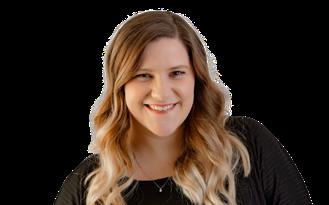
3 minute read
YOU CANNOT POUR FROM AN EMPTY CUP
BY MAURA MCBREEN MS, LMFT Owner of Wounded Haven Counseling, LLC

I am happy to be back, writing to North Mankato readers about a topic I just cannot get enough of: BOUNDARIES!
Boundaries are a vital part of what helps us function as our most authentic and healthy selves. Without them, we create loads of problems that will impact us or impair our functioning. I will touch on physical, mental and emotional boundaries.
Physical boundaries are a tangible closeness to something or each other. For each person, this physical boundary will be different, making consent important. An example may be one person loves hugs and the other does not. It is important to consider how people differ in this comfort and be mindful of respecting what feels safe to another. If you are an individual who loves hugs and physical touch, your system may feel shamed or rejected by someone who doesn’t. It’s absolutely okay for an individual who doesn’t like physical touch to state this limit and say “no thanks, I don’t like hugs.” Those who experienced physical boundary violations at a young age already have a skewed concept of boundaries. Modeling and practicing these physical boundaries are part of their treatment as they advocate and empower themselves to learn more about what feels safe to them.
Mental and emotional boundaries also exist. We cannot see these and they are often harder to practice for yourself, as well as respect for others. Mental and emotional boundaries are important for how we relate to others in this world. They show up in the form of comments, questions, opinions, recommendations, pressures, etc. Whether those thoughts come from friends, family, coworkers or the public, they are a part of almost every interaction. With my clientele, family system boundaries are addressed on a daily basis. Working with abuse, enmeshment and trauma, boundaries are a pillar in my work with clients. Setting limits with family members who are toxic is a way to kickstart healing and unlearn those “shoulds” of life.
Many of us are raised to believe that because certain people are family, they have to stick together, regardless of how they’re treated. Although an idealistic family would experience smooth sailing and unconditional love and support, that is not the reality of human behavior. Sometimes creating separation can lead to clearly seeing the work needed to heal. Later, determine what you want the bridge to look like between you and others. Sometimes bridges are big, and sometimes we remove them. Whatever the case may be, it is important to understand your own boundaries and how you are honoring them. This same practice can be said for friends and others.
Others may view your boundaries negatively as they are formed. Yet the truth is, the individuals who don’t like boundaries can take advantage if there are none. At the beginning and end of your day, check in on your boundary bucket. Chances are, if you lack boundaries in some area of your life, you will feel drained, empty and consistently exhausted. You then have nothing to give to yourself or others. Although a lack of boundaries may be the norm, it is not a healthy or sustainable way to live. You cannot pour from an empty cup. Setting boundaries will not always be what is popular, but in return you’ll be giving the world a better version of yourself.
Many people lack boundaries and don’t often know how to identify that theirs are being violated. When initially learning to set boundaries, there may be feelings of shame or guilt, you may feel mean and uncomfortable. What is important to know is that the dissonance you are creating in the new behavior of setting boundaries is your body’s way of informing where boundaries are needed. I encourage all readers to gather more data of your boundaries and become more aware of others as you step out into the world. We don’t grow when we’re comfortable and boundaries is an area we can all work to improve for ourselves and others.










